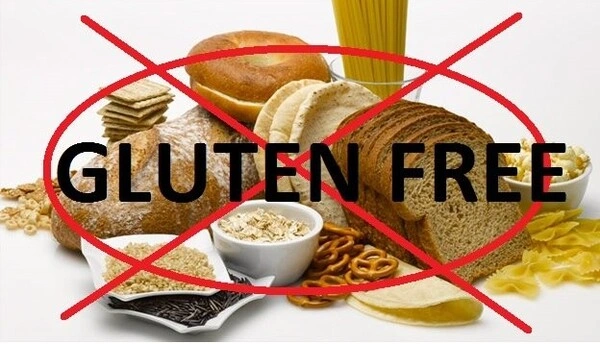Low fat diet genetic

If you tested your DNA with a personal genomics service like 23andMe, AncestryDNA, FamilyTreeDNA, MyHeritage or another testing company, you can learn more about your risk factors for hundreds of diseases. By clicking the button above ⬆️, you can upload your raw DNA data file and receive a personalized 250-page health report with research links that is the most comprehensive.
The American Heart Association (AHA) suggests a low-fat diet as a healthy eating practice, which involves consuming less than 30% of total energy from fat, less than 10% of total energy from saturated fat, and less than 300mg of cholesterol.
Dieters can now refer to a recent genetic report to determine which diet plan would be more effective for them in terms of weight loss - a low-fat diet, a carbohydrate-restricted diet, or a more well-rounded approach.
Don't lose hope if you're fed up with dieting. According to scientists, genetic testing is a cutting-edge and encouraging method for personalized nutrition guidance. With the increasing accessibility of DNA testing, discovering your genetic composition is effortless. This enables you to make informed decisions about your diet instead of guessing what to eat.
Interleukin, a company based in Massachusetts, has developed a test that searches for mutations in three genes: FABP2, PPARG, and ADRB2.
According to the company, 39% of Caucasian Americans possess the low-fat genotype, while 45% have the genotype that reacts positively to a low-processed carbohydrate diet. Additionally, 16% of individuals have the gene mutation that aids in weight loss through a well-balanced diet.
When examining individuals attempting to adhere to the lowest carbohydrate (Atkins) and lowest fat (Ornish) diets, the disparities in weight loss were more pronounced. Those whose genotype aligned with their chosen diet experienced a weight loss of 6.8 percent, while those whose genotype did not match their diet only lost 1.4 percent.
Three genes, namely fatty acid binding protein 2 (FABP2), peroxisome proliferators activated receptor gamma (PPARG), and beta 2 adrenergic receptor (ADRB2), were singled out from the hundreds of genes associated with obesity due to their biological connection with diet and weight loss.
It is becoming more challenging to determine what to eat with the abundance of diets available. Recent studies suggest that a universal approach to dieting is not effective, and dietary recommendations should be tailored to each individual.
Personalised nutrition is becoming increasingly important for those seeking to improve their health and lose weight.
Follow the link of the selected polymorphism to read a brief description of how the selected polymorphism affects Low-fat diet and see a list of existing studies.
SNP polymorphisms related to the topic Low-fat diet:
| rs1799883 | This genotype is associated with increased sensitivity to both saturated fat and refined carbohydrates. Thus, allele A impairs the effectiveness of both low-carbohydrate and low-fat diets. |
| rs2287019 | The T allele of the GIPR gene is associated with greater improvements in glucose homeostasis in people who choose a low-fat, high-carbohydrate, high-fibre diet. |
| rs9939609 | The common variant rs9939609 of the FTO gene, associated with fat mass and obesity, is associated with fat cell lipolysis as well as early onset of extreme obesity. Studies show that carriers of the risk allele A demonstrate significantly greater weight loss on a fat-restricted diet than non-carriers. |
| rs987237 | The AA genotype of the TFAP2B gene was associated with greater weight loss on a low-fat, high-protein diet. |
| rs2943641 | People with the C allele may gain more weight loss and improved insulin resistance benefits than people without this genotype by choosing a high-carbohydrate, low-fat diet. |
| rs964184 | Involved in lipid and vitamin E metabolism. The genotype is a moderate risk factor for reduced vitamin E levels. A low-fat diet is suitable for people with this defect. On a low-fat diet (20% of energy comes from fat), carriers of the risk allele (allele G) had greater reductions in OX and LDL cholesterol levels. These studies showed better lipid profile improvement with long-term low-fat dietary intake in the risk allele G. |
| rs10830963 | common variant MTNR1B, which encodes melatonin receptor 1B, increases the risk of impaired fasting glycaemia and type 2 diabetes due to impaired glucose-stimulated insulin release. The findings suggest that carriers of the G allele rs10830963 may have greater improvement in obesity and body fat distribution when following a low-fat diet. |
| rs6795735 | Carriers of the GG genotype (minor allele G) lose more weight on a low-fat diet than carriers of the AG or AA genotypes. |
| rs266729 | Carriers of the GC genotype (minor allele G) lose more weight on a low-fat diet than carriers of the CC genotype. |
| rs11150675 | AA genotype carriers (minor allele A) had less weight loss on a low-fat diet than AG and GG genotype carriers. |
| rs4994 | A beta-3-adrenergic receptor mutation is associated with visceral obesity but lowers serum triglyceride levels. Carriers of the G allele necessarily need strength training to lose weight and keep the body in good shape. |
| rs10182181 | |
About The Author
Li DaliLi Dali, a National Foundation for Outstanding Youth Fund recipient, is a researcher at the School of Life Sciences in East China Normal University. He earned his PhD in genetics from Hunan Normal University in 2007 and conducted collaborative research at Texas A&M University during his doctoral studies. Li Dali and his team have optimized and innovated gene editing technology, leading to the establishment of a world-class system for constructing gene editing disease models.


